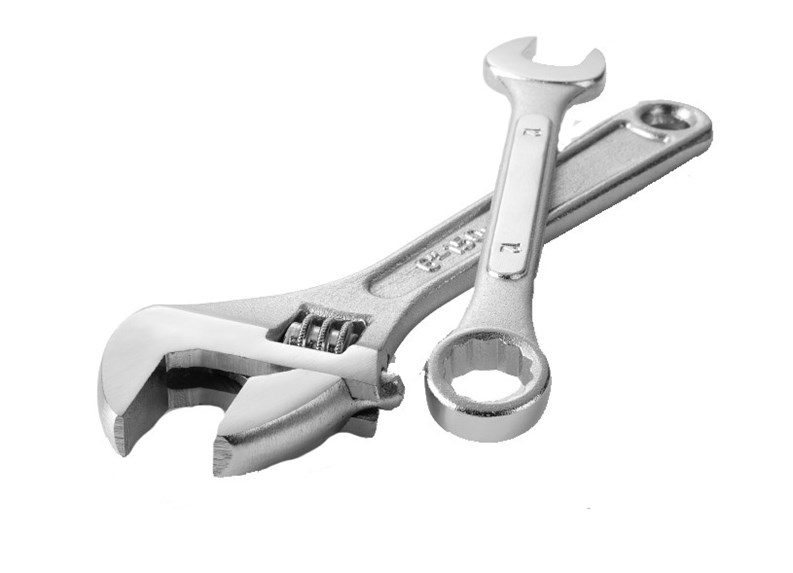You probably don't think about your building's boiler very often. As long as it provides heat and
hot water, it's pretty much out-of-sight, out-of-mind. And when the boiler does need repair, you probably depend on your management company to make the arrangements and then report back that the repair has been done and at what cost. But, these days, there's a lot more to boiler repair than meets the eye. An interesting little drama is unfolding around the city's recent adoption of a state code regarding welded boiler repairssomething called an R-Stampand what local boiler repair companies are doing (or not doing) to comply with it.
The law governing welded boiler repairs is clear. According to New York State code rule 4, subpart 4-6 (Installations, Repairs and Replacements of Low Pressure Heating System Boilers), section 4-6.2: Patch and welding repairs shall be performed in accordance with subpart 14-3 of industrial code rule 14. This code states, Repairs to boilers shall be performed by an organization in possession of a valid National Board or New York State Repair Certificate of Authorization and/or of a valid ASME [American Society of Mechanical Engineers] Certificate of Authorization.
This law has been on the state's books for at least a decade, but it wasn't until last year that the city included it in the New York City Charter and Administrative Code for the purpose of enforcement. Although New York City is subject to statewide rules and regulations, the city, because of its size, is considered a separate municipality in some cases, and so was entitled to write its own boiler welding repair code.
The only requirement was that the city's code be at least as stringent as the state's. Effective July 1996 the city code, adopted by the Department of Buildings, now requires that, All low pressure boiler welding repairs shall be performed by certified welders, as required by the New York State Industrial Code Rules..., and, The failure to comply with requirements relating to boiler inspections and welding repairs may result in the issuance of a notice of violation and related enforcement proceedings.
A Potential Time Bomb
Richard Blaser, president of Bronx-based Atlas Welding and Boiler Repair, Inc., one of the largest and oldest full-service boiler companies in the metropolitan region, organized a meeting in 1995 of the National Board of Boiler and Pressure Vessel Inspectors, Hartford Insurance Company (the largest insurer of boilers and equipment in the country and in the metropolitan area) and the New York City Department of Buildings to encourage the city to include in its code explicit language governing welded boiler repairs. He succeeded.
A malfunctioning boiler is like a time bomb, says Blaser. It can start a fire, and in the worst case scenario actually become a missile and cause tremendous damage and possibly loss of life. I set up the meeting because we had seen a lot of unlicensed repairs being done and I didn't want to wait for a really bad accident before the city perceived this as an issue of life, health and safety.
Making Welded Repairs
The overwhelming majority of residential properties operate low pressure boilers, which the code above applies to. A welded repair to one of these boilers is a repair in which defective steel is cut out and new steel is welded in. S ffb uch a repair would be necessary, for example, when the steel is leaking due to corrosion or old age. This general category of welding repairs is covered by the R-stamp, which is a quality symbol issued by the National Board of Boiler and Pressure Vessel inspectors only to those boiler repair companies that comply with an extensive list of quality control requirements.
These requirements include that a certified insurance company or certified inspector oversee and sign off on every repair; that the company write, promulgate and enforce an in-house quality control manual, and submit to a review of its manual every three years; that the company be audited annually by an authorized insurance company, including (but not limited to) inspection visits to work currently in progress; that all of the company's welders pass a test to ensure that their work complies with both the company's and the national standards; and that every repair performed by a certified welder be tagged with the company's R-stamp number and the date of the repair.
If I'm going to do an R-repair, I have to discuss it with the inspector and he has to approve the proposed repair, explains Richard Berger, president of Brooklyn-based Boiler Repair Group. Then, during the course of the repair, he may want to look at the job to see that the procedure is correct, that the joints are welded properly and that the job meets his satisfaction. Then he'll do a final inspection and pressure test on the boiler, and inspect the materials that went into the boiler documentation. You have to be sure, for example, that the steel is traceable back to the mill and that everything is according to the original code that the boiler was built to. So when you give someone a report of an authorized repair signed by an inspector, it's an assurance to the owner that the repair has been done according to the standards of the National Board.
Blaser adds, I consider the R-stamp to be a symbol of quality, in the sense that people who possess it are subject to rigorous quality controls. Both the welder and the company need to be certified. The company must be certified and must have in place certain welding procedures. A welder must be qualified for each procedure, and he can only weld to the procedures he's certified to do. If a certified welder leaves a certified company, he's no longer certified, especially if he goes to a non-certified company, because he's no longer working under certain quality controls.
Is the R-Stamp Realistic?
Critics of the R-stamp maintain that establishing and enforcing all these quality controls is time-consuming and expensive for the boiler companies that submit to them. For one thing, certified welders command much higher salaries. There are also considerable administrative costs involved with obtaining and maintaining R-stamp certification. This increased cost of doing business has to be made up somewhere, so it's passed on to the customer and, in some cases, may add as much as 50 percent to a job.
If it's an extensive repair, it absolutely should be done by a company with an R-stamp and should be signed off by an authorized inspector, says Berger. But to do a little patch welding for $1,000, is a building owner going to pay another $500 for a piece of paper? I don't think so.
Some local boiler companies are unwilling to bear the cost of R-stamp certification; and furthermore, they believe the code itself is meaningless. You're still going to see most boiler repairs done by companies without an R-stamp because of the cost, says the president of one company. Most building owners don't even know to look for it. Besides, in other states the law governing boiler welding repairs isn't as stringent as it is here. The head of another boiler company, who also wishes to remain anonymous, agrees, saying, We had R-stamp certification, but we're not going to re-apply. It's a bunch of malarkey. Most companies that have it aren't complying with its criteria, anyway.
To these objections, Berger responds, The guys who don't want to spen fe8 d the effort and expense to maintain R-stamp certification will tell you that it's meaningless. But it's not. It's the law, and it assures a quality job. If an insurance company sees that a repair wasn't tagged with an R-stamp, they can cancel the insurance until the owner gets it done properly. Berger adds that his customers are getting higher quality work because he has R-stamp certification. It raises the level of work performance. Sure, there are owners out there looking strictly for price, and you can always find someone to do it cheaper. Quality costs more. Your boiler is not the place to cut corners.
The Price of Non-Compliance
The law states that boiler repair companies that perform R-repairs without certification are subject to fines. And properties that allow uncertified companies to perform repairs can be hit with violations, fines, cancellation of their boiler insurance and loss of the right to operate their boiler. But the law hasn't been tested yet. In fact, according to Blaser, The law doesn't really say who the violation is issued to: the company performing the uncertified repair or the building owner. I'm now in the process of getting the city to clarify that. But why would any building owner employ someone who's not qualified to do a repair? If a welded repair isn't done properly, then it isn't structurally sound and that's dangerous. Why would anyone take that chance? If the repair you have done is illegal and uncertified and the right agencies find out about it, you're going to have to do it again, anyway. Property owners and management companies need to be educated about this.
Blaser points out that if you look in the Yellow Pages under the plumbing section, there's a notice that all plumbers have to be licensed. He's in the process of working with the Yellow Pages to run a similar notice in the boiler and welding section. That's how important I think it is.
Ms. Dershowitz is a Contributing Editor for The Cooperator.







3 Comments
Leave a Comment